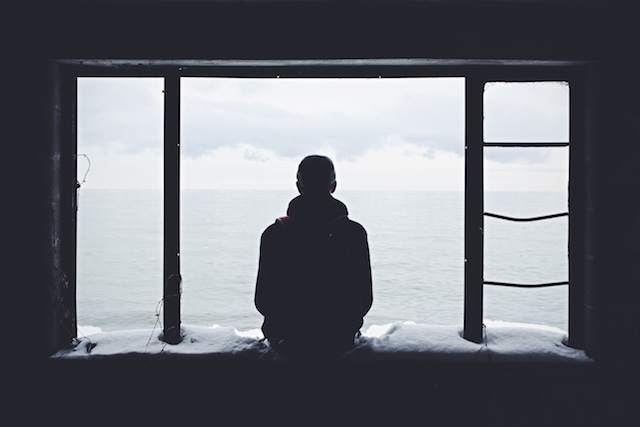
I am 24 years old, and I have been living with a severe chronic illness for the past six years.
The biggest struggle has been trying to communicate to the people in my life what this experience is like for me. It’s not the symptoms that are the most difficult to deal with. It is not how the symptoms affect my life either, or all of the doors that have been closed off as a result of my physical limitations. These things are horrifying, but bearable.
What is not bearable is being misunderstood, not being able to express the truth of my illness, and even being judged for that miscommunication.
It is hard to know what we think if we do not say it out loud. There is an element of faith in speaking and embodying the truth, because with truth comes risk. We are trusting that if we honor what is true, it will work out better than if we lie to ourselves and those around us.
When I tell the truth, I am putting my faith in the idea that everything will work out for the best, no matter the consequences. I prefer to do that than to tell lies in comfort and security.
In light of that, I want to take a few moments to describe what it means to live with this condition every day of my life.
I was trying to explain this to a friend the other day, but living with this illness feels like someone stuck a needle into my bones and extracted the very marrow of my being. It is like having my essence sucked out constantly, while still trying to move around in this physiological shell that I now call my body. It’s like being in a strange kind of survival mode, even during the most mundane activities, and then seeing that no one around me is experiencing even close to the same feelings of bondage and deprivation.
I live with the underlying sense that I would be the first one knocked off in a survival situation, and the existential impact of this feeling is almost impossible to describe to someone who hasn’t ever known it.
When the average twentysomething goes out for the night, drinking until the sun comes up without much water or food, they will feel sick and drained the next day. For me, feeling that way would be a profound luxury, because even someone who is ruthlessly hungover is capable of snapping out of it if the situation demands it. My illness keeps me from reacting the same way, and this sense of being ineffectual makes me want, at times, to resist life itself.
After another set of complications to my health, I’ve realized that I may never recover. My path to well-being has been interrupted again, which has made me think more honestly about how to sustain a sense of meaning and joy—even if I never recover.
I have been trying to accept what this would mean and attempting to embrace what this illness is showing me.
When these complications first occurred, I spent a number of weeks thinking about suicide—not in a “poor me” or “why, God, why?!” kind of way, but in a really honest and practical way:
If I continue to experience more suffering than happiness, and I see it only becoming worse and worse as I continue not to recover from this illness, then why should I go on living?
Sometimes, it’s not the right answer, but the right questions that reveal the proper path to us, you know?
I considered what it would mean if I ended my life now. How people would react. What it would say about human life. I would be at the movies with my partner, thinking about if I could accept this being the last time I ever laughed with her. I would be talking to a friend and thinking about if I could accept the possibility that this would be the last time I would see him.
And I found myself thinking, “Yeah, you know, I think I can accept that if really needed to.”
This acceptance has turned out to be the guiding light for me; it has rejuvenated my approach to my life, my illness, and the question of whether life is worth living, even when it’s full of suffering. What I realized is this: if we can strive for the highest good and embody the truth of our own experience, regardless of what the consequences might be, then suffering is worth enduring, and life is worth living.
It’s not coincidence that a fundamental teaching of most religions is that life is suffering. In the Bible, Jesus speaks with God the night before his crucifixion, and although he knows that he will be subject to unimaginable suffering, he decides to accept the burden of his own suffering—no matter how unjust or painful—when given a choice. Because of this choice, he is able to save humanity for eternity. Come on guys, that’s not in there by accident!
When we consciously accept the burden of our own suffering, rather than running away from it, we transform suffering into higher consciousness. Suffering can change us for the better when we accept it—that is the only way to save our souls.
Dostoevsky once said, “There is only one thing I truly dread: not to be worthy of my sufferings.” I’d like to honor my soul by being worthy of the suffering that has come with my illness, and if I can achieve that, maybe I can make something of this crazy f*cking life.
We’ll see, man.
~
~
Author: Samuel Kronen
Image: Noah Silliman/Unsplash
Editor: Nicole Cameron
Copy Editor: Yoli Ramazzina






Read 0 comments and reply